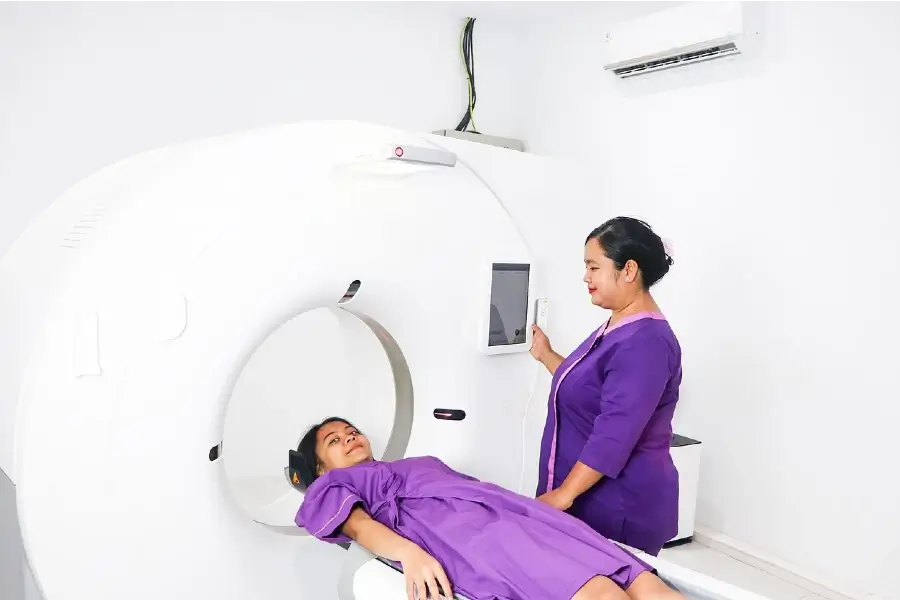There is a collection of chronic inflammatory disorders that affect the gastrointestinal (GI) tract, also called the digestive system. These conditions are together referred to as inflammatory bowel disease (IBD). Among the two most common types of IBD are:
This kind of inflammatory bowel disease (IBD) can cause inflammation in any area of the gastrointestinal tract, from the mouth to the anus. On the other hand, the ileum, the lower part of the small intestine, and the colon are the most frequently affected areas.
A type of inflammatory bowel disease known as ulcerative colitis primarily affects the colon’s inner lining (large intestine) and the rectum.
IBD Signs and Symptoms:
Inflammatory bowel disease (IBD) can cause a wide range of symptoms, which might change based on the degree of inflammation and the precise location of the affected area. Nevertheless, the following are some general signs:
- There is a possibility of bloody diarrhea.
- Cramps and pain in the abdominal region.
- There is an immediate and pressing desire to have a bowel movement.
- Bleeding from the rectal area.
- Loss of weight
- Exhaustion
- Experiencing feelings of bloating
Your likelihood of having inflammatory bowel disease (IBD) is increased if you have a close family who has the ailment.
IBD can be caused by:
The specific cause of inflammatory bowel disease (IBD) is unknown; however, experts believe that it is caused by a mix of variables, including the following:
In individuals with inflammatory bowel disease (IBD), the immune system mistakenly assaults healthy tissues in the gastrointestinal tract, causing inflammation.
Your likelihood of having inflammatory bowel disease (IBD) is increased if you have a close family who has the ailment.
Environment: Certain environmental variables, such as smoking or exposure to specific bacteria or viruses, may contribute to the development of inflammatory bowel disease (IBD).
Diagnosis of inflammatory bowel disease:
No one test can detect inflammatory bowel disease (IBD). In most cases, medical professionals employ a variety of diagnostic approaches, which may include the following:
Personal medical history and physical examination: Your physician will discuss your symptoms and medical history and then examine you physically to look for any indications of inflammation.
- Blood tests can diagnose a variety of illnesses, including anemia and infections.
- Stool tests can detect blood, infections, or inflammation not visible to the naked eye.
- Imaging procedures such as X-rays, CT scans, or MRIs can be utilized to visualize the gastrointestinal tract and identify any inflammation or blockages.
A cure for inflammatory bowel disease (IBD) does not exist; however, therapies can help manage symptoms and reduce inflammation.
During endoscopy surgery, a thin, flexible tube equipped with a camera is inserted into the rectum and colon. This allows the physician to observe the inner lining of the colon and rectum. Tissue samples, often known as biopsies, may be collected for further investigation.
Treatment for inflammatory bowel disease:
A cure for inflammatory bowel disease (IBD) does not exist; however, therapies can help manage symptoms and reduce inflammation. Some of the most common treatment options are:
Corticosteroids, which reduce inflammation; immunosuppressants, which suppress the immune system; and anti-diarrheal drugs, may be used.
Alterations to one’s diet and way of life: Certain modifications to one’s diet and way of life, such as learning to handle stress better, can assist in managing symptoms and improving one’s general well-being.
The removal of a damaged piece of the gastrointestinal system may require surgical intervention in those cases that are particularly severe.
Living with inflammatory bowel disease:
Keep in mind that if you are suffering symptoms of inflammatory bowel disease (IBD).
Inflammatory bowel disease (IBD) is an illness that can be difficult to manage. Still, with the right therapy and lifestyle management, many people who have IBD can live whole and productive lives. Please find below a selection of materials that you might find helpful:
Inflammatory Bowel Disease from the National Institutes of Health (NIH): https://www.niddk.nih.gov/about-niddk/strategic-plans-reports/burden-of-digestive-diseases-in-united-states/inflammatory-bowel-disease
Crohn’s and Colitis Foundation: https://www.crohnscolitisfoundation.org/
Keep in mind that if you are suffering symptoms of inflammatory bowel disease (IBD), it is essential to obtain a correct diagnosis and treatment from a medical professional.
